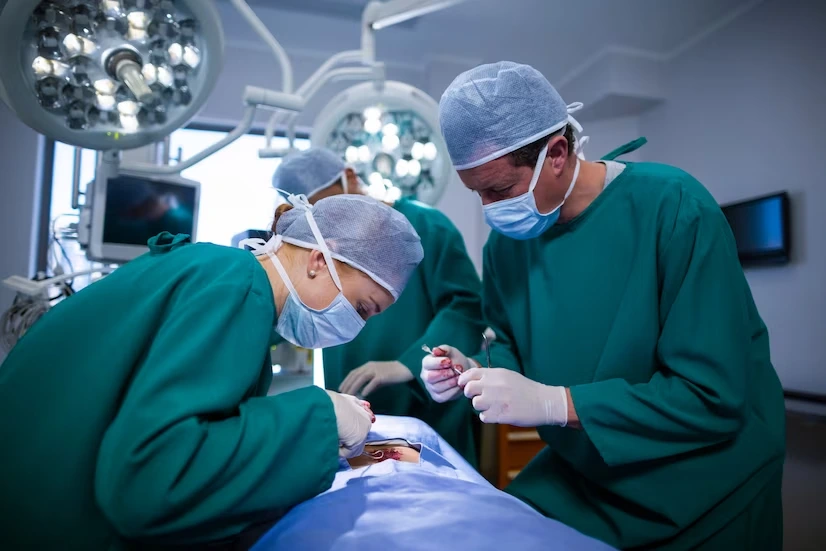Hernias are one of the most common types of medical conditions in the world and can cross all the gender lines. However, the signs and symptoms of hernias between men and women will be significantly different because of variations in anatomy, physiology, and lifestyle. This comprehensive guide will take you through women with hernias, the different types, unique symptoms associated, underlying causes, treatment options, and effective strategies of prevention. This guide will enable you to know how to operate well in hernias. Hernia and Women Any organ or tissue pushing through a weak spot in the surrounding muscle or connective tissue constitutes a hernia. Even though hernias are more predominantly associated with males, women are also prone to such conditions, with the experience of women being different from that of men. They have distinctive challenges and symptoms resulting from different anatomy and more specific hormonal implications. Thus, there is a need to understand particular nuances of hernias among women. This knowledge can guide the seeking of proper medical care and lead to better management of the condition. Types of Hernias Common in Women Inguinal Hernia: Although more common in men, women can also develop inguinal hernias, which occur in the groin area. Femoral Hernia: More common in women, this type of hernia occurs in the upper thigh, just below the groin. Umbilical Hernia: This type of hernia occurs near the belly button and can affect both men and women. Ventral Hernia: This occurs in the abdominal wall and can be a result of previous surgeries or weakened abdominal muscles. What Does a Hernia Feel Like for a Woman? A hernia can cause a variety of symptoms, including: A visible bump or swelling at the site of the hernia Feeling of pain or discomfort, particularly when lifting heavy objects, coughing, or straining A feeling of heaviness or pressure in the abdomen or groin Nausea or vomiting, in severe cases How Symptoms May Differ from Men Women may experience different symptoms due to anatomical differences. For example, femoral hernias are more common in women and can cause pain in the upper thigh or groin. Additionally, women may experience hernia symptoms that mimic menstrual cramps or other gynecological issues. This can sometimes lead to misdiagnosis, as the symptoms might be attributed to other conditions. Therefore, it’s crucial for women to be aware of these differences and consult with a healthcare provider who is knowledgeable about the unique presentation of hernias in women. Early and accurate diagnosis can lead to more effective treatment and better outcomes. What Are the Causes of Hernia in Women? Various things can lead to a hernia, like Weakened abdominal muscles due to pregnancy or childbirth Chronic coughing or straining during bowel movements Heavy lifting or strenuous physical activity Obesity Genetic predisposition Risk Factors of Hernia Age Pregnancy Obesity Chronic constipation Chronic cough Previous abdominal surgery Family history of hernias Prevention Strategies Maintain a healthy weight Avoid heavy lifting or use proper lifting techniques Manage chronic cough and constipation Strengthen abdominal muscles through exercise Seek medical attention for any persistent abdominal pain or discomfort Diagnosis Method To figure out what’s wrong, a doctor will usually check you over.Imaging tests such as ultrasound, CT scan, or MRI may be used to confirm the diagnosis and determine the severity of the hernia. Treatment Options Treatment options for hernias in women include: Watchful Waiting: For small, asymptomatic hernias, monitoring may be sufficient. Lifestyle Changes: Weight loss, avoiding heavy lifting, and managing constipation can help alleviate symptoms. Surgery: For larger or symptomatic hernias, surgical repair is often recommended. Conclusion Hernias in women are a manageable condition with the right diagnosis, treatment, and preventive measures. By understanding the unique aspects of hernias in women, you can take proactive steps to ensure your health and well-being. Early detection and appropriate care can significantly improve your quality of life and prevent potential complications. Don’t hesitate to consult with a healthcare professional if you have any concerns or questions about hernias. Contact Form Demo NameEmailYour MessageSubmit Dr. K. Amilthan MBBS., MS., FMAS., FALS. Heal Your Hernia Now: 20+ Years of Experience 1,000+ Surgeries Your Journey to Wellness Begins with us. Book Appointment FAQ’s Is a Female Hernia dangerous? Most hernias are not emergencies. However, they can become serious and cause severe complications if left untreated. They will also be characterized by piercing and sharp pains. Can a Hernia need surgery? Some minor, painless hernias are not necessarily surgically treated. Still, lifestyle changes and waiting for your body to mend the rupture might be suggested. But bigger or painful hernias require surgical intervention in order to prevent complications. What Size Hernia Surgery Includes? The decision to operate on a hernia is based on symptoms and the risk of complications rather than size alone. However, larger hernias are more likely to cause symptoms and complications, making surgery a common recommendation. Dr. Amilthan Dr. Amilthan is a renowned laparoscopic hernia surgeon based in Chennai, with over 20 years of experience in general surgery. He completed his MBBS and MS in General Surgery at Kilpauk Medical College and Government Royapettah Hospital in Chennai. Edit Template All Posts Yoga for Hernia Hernia happens when tissue of an organ pushes through a weak spot in the surrounding muscles or connective tissues. Hernia… Read More Hernia in Women Hernias are one of the most common types of medical conditions in the world and can cross all the gender… Read More
For Appointment
+91 8602410241
Email Us
chennaiherniasurgeon@gmail.com
Timing
24 / 7

